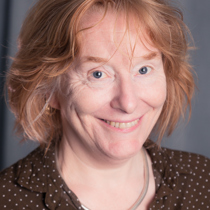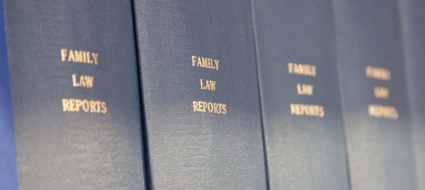Research in Practice is working with 25 local authorities and children’s trusts and their local Cafcass partners, with support from local and national staff in His Majesty’s Courts and Tribunals Service (HMCTS) to deliver a scoping pilot commissioned by the Department for Education (DfE).
The pilot introduces an information-sharing meeting between the child’s social worker and Cafcass Guardian involved in a child’s case, which will take place after the issuing of care proceedings but prior to the first Case Management Hearing (the pre-CMH meeting). The pilot runs for five months (August to December 2023) at which point the DfE will review and assess whether to extend the pilot more widely. As ever, Research in Practice will focus on:
- Bringing evidence-informed learning and development to the professionals involved in the pilot: through a series of online workshops, support sessions for participants and access to a suite of newly developed resources.
- Bringing professionals from across the country together to share practice expertise: a dedicated Microsoft Teams Channel provides a platform for peer-to-peer learning and supports us to feedback pilot participants’ experiences to the commissioner and other stakeholders.
- Ensuring that the views of children and families whose lives are the subject of these professional activities inform their work: colleagues at Family Rights Group will contribute to developing workshop content focused on how child and family perspectives are centred in the pre-CMH meetings.
The pilot is one of a number of national initiatives on reducing delay in the family courts. While the negative impacts of delay on the children and families involved are well understood, delay increased again through the pandemic and post-pandemic years. In public law, the annual national average for the time children spend in the family justice system over 2021 to 2023 is 46 weeks, when the statutory requirement is 26 weeks.
The President of the Family Division, the Public Law Working Group, the National Family Justice Board and others have been working to identify causes and agree means to address delay; there are various strands of work afoot of which this pilot is one element. As one experienced local authority colleague put it:
We know there is no silver bullet– the causes and issues of delay are complex and involve many different participants in the family justice system. Nevertheless, we are optimistic that piloting these meetings may be one means to chip away at the mountain of delay and improve the way the system works to deliver family justice.
Opportunities: How might these meetings help?
Analysis by ADCS and Cafcass of cases exceeding 48 weeks identified that preparation for the initial Case Management Hearing (CMH) may be improved if a Cafcass Guardian has clearer understanding of work undertaken with the child and family prior to and in pre-proceedings.
The hypothesis is, that an early meeting will enable better understanding of how work undertaken prior to the application has (or has not) supported positive change for the child and family. The Cafcass Guardian will be better informed on the social work analysis of the timing of the application and reason for type of Order applied for. In some instances, this increased clarity may reduce uncertainty that leads to requests for new expert assessments at the CMH. In all cases, the meeting should ensure that guardians come to the CMH with enhanced and up to date understanding of the child and family’s situation. It will be vital that the meeting is well facilitated, with clear notes taken to feedback swiftly to children and families on what was discussed.
Challenges: How might these meetings raise new concerns?
In delivering this pilot we are highly alert to the need to consider unintended consequences of introducing this meeting at this stage. Some issues that are front and centre in our minds as we get underway include:
Guardian independence: The meeting is intended as a means to exchange information and share history. It is vital that both social workers and guardians are clear that this is not a decision-making meeting nor a pre-court hearing but a discussion to inform the first CMH. The independence of the guardian must be maintained in this discussion and the chairing of the meeting will need to be alert to ensuring that this is the case. We will be monitoring this issue carefully with participants and reporting back on challenges this may raise.
Transparency and the voices of children, parents, and wider family: The fair and transparent presentation of the views of parents and children at the meeting, and the clear and timely feedback to them about the discussion that has taken place will be core issues for the pilot.
The evidence is clear that family-led decision making at earlier stages in local authority/Children’s Trust involvement in their lives can improve outcomes, and in some cases divert away from family courts towards family-led responses. An evaluation of the impact of Family Group Conferences (FGCs) in pre-proceedings found that children whose families were referred for an FGC were less likely to go to court, less likely to go into care, and spent less time in care when they did become looked after compared to those not referred. We will be exploring with pilot sites their use of FGCs and how family-led decisions arising from FGCs inform the pre-CMH meeting discussions.
We will also be keeping pilot participants informed on the three-year project led by Family Rights Group to develop early and effective partnership working with families in pre-proceedings.
Capacity, timescales and logistics: Inserting the pre-CMH meeting into the tight timescale of the Public Law Outline (PLO) raises challenges for HMCTS colleagues tasked with scheduling. As such, listings officers' knowledge and perspective are important intelligence to feed into the pilot. We will coordinate with national HMCTS and with local listings officers to ensure this feeds into the pilot.
Analysing the impact of the pre-CMH meeting: The pilot timescale is short, and we are realistic about what may be evaluated in terms of impact of the introduction of these meetings. We will be working with participants to monitor the extent to which the pre-CMH discussion contributes to a more effective CMH meetings. One output from the project will be a briefing on key factors contributing to an effective CMH which we hope to test with members of the judiciary, legal professionals and families with public family law experience.
The family justice system is complex, and drivers of delay are multifarious. Many significant issues (such as social worker continuity, Cafcass Guardian capacity, availability of judges and court spaces to name only a few) are out of the scope of this pilot. Nevertheless, the enthusiasm and commitment from pilot participants that this early discussion may contribute to a more effective CMH is an encouraging note on which the work with pilot sites gets underway.




